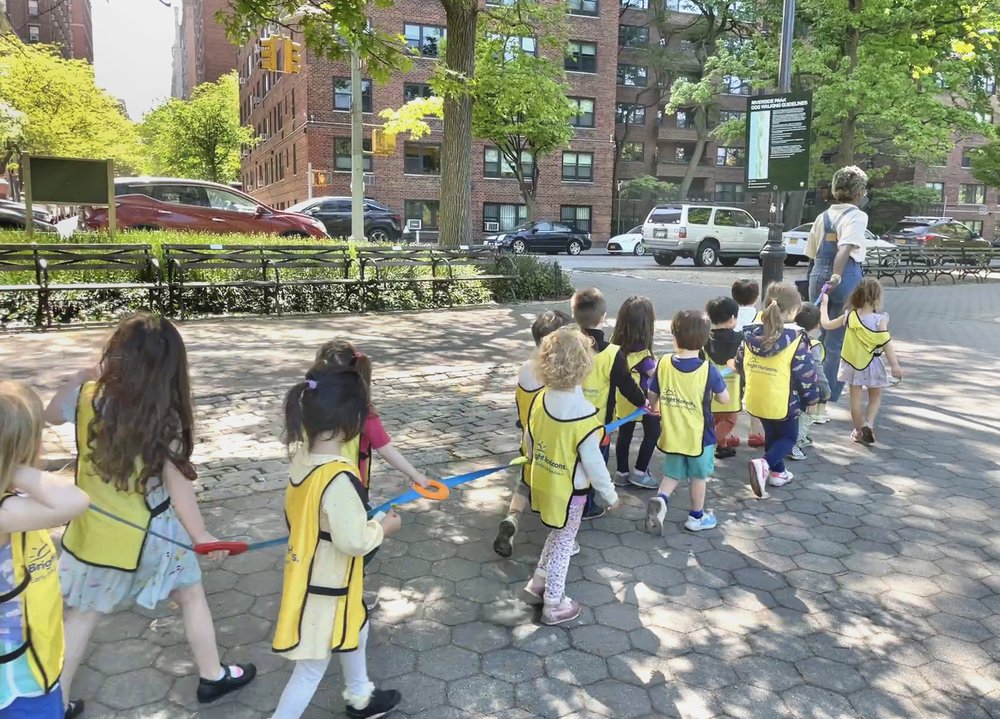3,000 kids in NYC waitlisted for child care vouchers despite funding boost
Aug. 19, 2025, 11:41 a.m.
Families who qualify based on income can get reduced child care or after-school services, but the program ballooned over its budget.

About 3,000 New York City families are currently waitlisted for child care vouchers despite a huge funding boost from both the city and state, according to city data.
That’s far fewer than the tens of thousands of families who would have been shut out of the voucher program without the added funding. But child care advocates say the number of children who remain on the waitlist for low-cost child care or after-school coverage underscores the growing affordability crisis gripping local parents. Most cannot afford child care costs, which can average $18,000 or more a year for an infant or toddler, according to the city comptroller.
“As this goes on, it becomes unsustainable because you are going to see more and more families will be rejected,” said Gregory Brender, head of policy at the nonprofit Day Care Council of New York, which represents more than 200 child care centers.
The Child Care Assistance Program, which has historically been mostly state funded, became so popular in the last few years that it ran out of money to cover all eligible families. That’s partly because Gov. Kathy Hochul made more families eligible by raising the income threshold to 85% the area median income, or about $108,000 for a family of four. She also made the program more expensive by increasing reimbursement rates for providers, who operate on thin margins and whose workers often earn low wages.
Compounding the problem, the city reinstated work requirements for cash assistance recipients and projected another 40,000 families would need child care vouchers to keep their benefits. By law, the city must provide vouchers for families on public assistance, meaning they are prioritized in the system. As a result, other families earning more could lose their vouchers when seeking to renew them — unless they meet state and federal priorities, such as being homeless or having a child with a disability.
The families being waitlisted include newly eligible families who qualify based on their income, and families who are renewing their vouchers but don’t meet certain criteria priorities, said Marisa Kaufman, a spokesperson for the city Administration for Children’s Services, which manages the program.
“We advocated for additional funding we need from the state to fully fund this program and close this waitlist so that families have the support they need, and we will continue to advocate for these critical resources to ensure every child and family is supported, no matter what,” Kaufman said.
During state and city budget talks this year, Hochul agreed to add another $350 million for the program, so long as the city agreed to match that. The city first opened its wait list in May.
ACS said as of June, nearly 28,000 children of families on cash assistance were receiving vouchers and more than 81,000 children whose families qualified based on income were enrolled.
Nora Moran, director of policy and advocacy for United Neighborhood Houses, which represents social service agencies that offer child care, said families who can't afford care are facing tough choices.
“Maybe they're paying for it, which given what we know about the average cost of care in New York is probably gonna be a huge financial burden for them, particularly if they qualify for vouchers," Moran said. "You might also see one parent or both parents leaving the workforce, reducing their hours, which ultimately impacts their economic earnings and can put a family in a more precarious financial state."
“For women especially, leaving the workforce, reducing hours, is something that's just hard to come back from over time," Moran added.
Roona Ray is a parent of three young kids and lost her job as a doctor while she was pregnant with her youngest baby. She said she and her partner have been receiving a voucher since February and were recently recertified, which was a relief as she continues to look for work. But she said the uncertainty of whether they can afford child care can weigh on families.
”When I had more stability, you don't have to think about basic things like is my kid going to have a safe place to be after school or during the workday? You can think about, ‘What movie are we gonna watch tonight with the kids? Or what fun activities can we do together?’” said Ray, a parent advocate for the advocacy group New Yorkers United for Child Care. “Instead we spend a lot of time kind of just worrying about a more basic level of survival and it really, I think, detracts from our quality of life.”
NYC to launch pilot for universal child care as part of $116B budget deal NYC, state battle over child care funding for thousands of New Yorkers